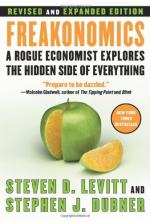|
This section contains 1,017 words (approx. 3 pages at 400 words per page) |

|
The Evolution of Economics
The term "economics" is derived from the Greek terms oikos ("household" or "estate") and nomos ("law" or "norm"). Economics, then, was first defined as a study of the laws and norms governing the function of a household or estate. The term was not coined until the late nineteenth century, when economic theory flourished.
From the 1500s onward, as countries began developing sophisticated methods for producing and distributing goods, early economic theories were devised to explain the best way for a country to achieve and sustain wealth. Most theorists of the time argued that a nation's wealth depended on both its gold reserves and its balance of trade. By exporting more goods than it imports, a nation could gain wealth from other countries while still keeping its own wealth within its borders. This idea became known as "mercantilism."
Adam Smith was the first person to...
|
This section contains 1,017 words (approx. 3 pages at 400 words per page) |

|




